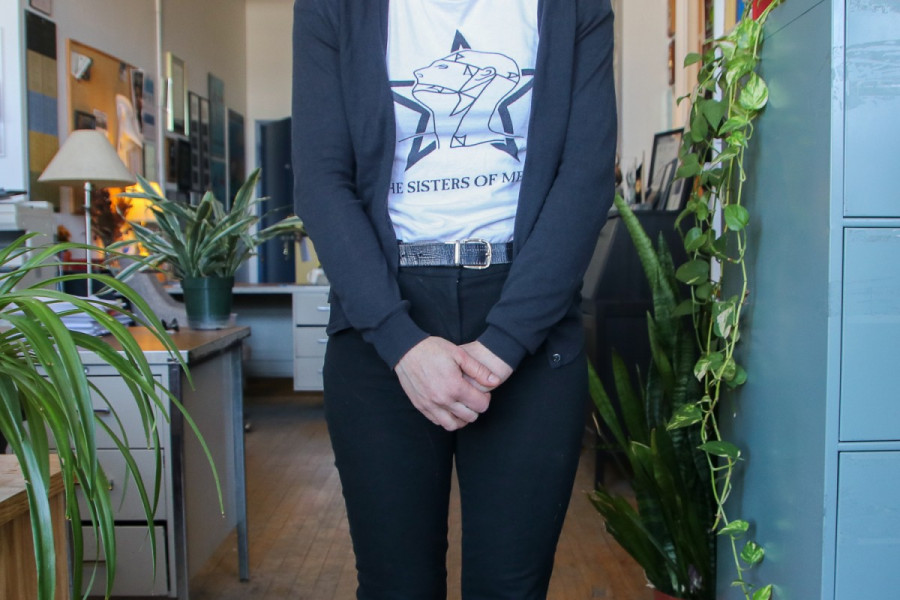Former Student Files Human Rights Case Against Concordia Following Sexual Harassment
Student Reached Out To The University For Years But Received No Help
A former Concordia student is filing a complaint against Concordia University with the Quebec Human Rights and Youth Rights Commission for not sufficiently protecting her from sexual harassment she faced from a professor, which she says violates of her right to equality in her education.
Alya*, a former student in the philosophy department said that she faced sexual harassment from a professor in the program in 2009. The Centre for Research-Action on Race Relations, a civil rights group in Montreal, is representing her.
Alya enrolled in the department in 2008. After enrolling in one of his courses, she said she started to receive inappropriate emails from her now former philosophy professor, where he invited her to go out and get drinks with him.
“At first I thought he was just being friendly, I didn’t initially accept [his offers], assuming he was being creepy,” Alya said.
“I tried to be friendly back, because I didn’t really know how to interact, I was 25 at the time,” she said. “I had never experienced that before.”
She said sometimes she would wake up in the morning, having received emails from him at two or three in the morning.
“I’m going out with a student of mine, […], who was a master’s thesis student last year. Want to join us after class? I can get you drinking Scotch and dancing!!!” one of the emails from the professor said.
Another email wrote, “I could always slip some vodka into your pop when you weren’t looking!”
At the start, Alya said she assumed the emails were written to her because he wanted to invite her out with other master students in the program. In two instances, the professor invited her to meet up for drinks with master’s students in the program, but when she arrived she found only females students were invited.
As a result of the harassment she experienced, Alya found it hard to keep going to class. As a result of the trauma she experienced from her harassment, Alya said she later failed two of her philosophy courses.
“I just stopped going to campus,” she said. “Even now, if I walk near that campus, if I see someone who resembles him it freaks me out and it’s creepy.”
She said she hasn’t visited the philosophy department since then.
When Alya went to the university to complain about the harassment, she said she didn’t receive much help. Instead, she said she was bounced around from office to office.
“In 2009 I spoke to the [Office of Rights and Responsibilities] and I tried to give a testimony,” she said. “They didn’t take a claim from me.”
She said during her journey to seek help, the office took no direct action after hearing her complaint, and she heard of no punishment taken against the professor. Later when Alya visited the Deputy Provost Lisa Ostiguy in Fall 2017, she said she was disappointed with her response.
“She apologized profusely, and then said ‘I’m sorry we didn’t have a good system in place back then,’ and that was her reasoning to what happened to me,” she said.
Alya said that at the time of the harassment, the Office of Rights and Responsibilities and former chair of the program, Matthias Fritsch, gave her various excuses as to why not more was being done. She was told action couldn’t be taken since it was too late to file a complaint, and that changes couldn’t made for her marks or class grades.
“I’m just a little ball in a pinball game, that’s how I feel—just back and forth, no one takes any responsibility and everyone says I can’t do it cause of this,” said Alya.
In the summer following her experience of harassment, Alya moved away to learn tattooing with a friend. In the meantime, she continued to follow up on the case with the ORR via email. She said the ORR told her they couldn’t do anything, and suggested she go back to talk with the chair of the department.
After writing to the chair, she said they did nothing to resolve her issues with her low GPA, which prevented her from getting into McGill and other universities.
Instead, when she first contacted Fritsch in June 2009, he wrote to her in an email that if she were to ask for an extension from teachers on the two assignments she failed to complete due to the trauma and stress she had experienced, “It would be best not to mention the harassment case.”
She said she wrote a petition, which Fritsch encouraged, in order to obtain an extension for assignments she could not complete.
“But I was just so stressed and anxious with the situation—so disgusted—that I didn’t manage to finish it on time,” Alya said.
“I was just exasperated and I thought, ‘I cant deal with this anymore, because no one’s listening, no one cares.’” — Alya
“I was just exasperated and I thought, ‘I cant deal with this anymore, because no one’s listening, no one cares,’” she said. “When I do get a response, it’s ‘Don’t talk about it.’”
“At first all I wanted was [for] them to maybe take the classes off, reimburse me or something, because I didn’t think it was fair I had to be subjected to that,” she said.
It wasn’t until the fall of 2017 that Alya got her two failing classes removed from her transcript after a meeting with Ostiguy, the school’s deputy provost.
Alya said she was not the only student that experienced harassment with the teacher, saying another student had approached her to tell her of even more difficult experiences she had with him.
CRARR executive director Fo Niemi and Alya couldn’t provide details of what happened to the other student, as she has not pursued a legal case.
However, Niemi said, “we know that what happened to her is worse than what happened to [Alya].”
“I just want to some accountability from this institution, I want this not to happen to other people,” said Alya. She is also seeking $60,000 in damages.
“The failure to act with the gross negligence of providing support creates what we call a toxic environment for women students, to us it’s systemic,” Niemi said. “This is something that we’ve started to see across the country.”
Alya said when she saw more cases like her own being published in student press at Concordia, it pushed her to try and take action yet again.
“I thought, ‘Ok wow I have to do something, because this is yet another department with yet another professor who’s getting away with criminal activity,’” she said. “The philosophy department itself is just a boys club, ivory tower, very few women, very few minorities.”
“We feel the whole system basically just crushes, instead of lifts the students up,” said Niemi.
“There’s a lot of cases coming forward [within Concordia], because the Concordia Student Union is very active,” said Niemi, adding that the CSU often refers those enduring cases of harassment to seek help from CRARR.
“Concordia has done much work in recent years to ensure survivors have a safe environment and feel well supported to bring forward and disclose cases of sexual violence,” said Mary-Jo Barr, Concordia University’s Spokesperson. She did not comment on Alya’s specific claims.
Currently, CRARR is handling four complaints against the university, including Alya’s case. Others include a case against the Graduate Student Association, and one against eConcordia. CRARR has settled three cases based out of Concordia University in the last five years, Niemi said.
*The woman involved decided to come out speak of her experiences on the condition of anonymity.




_600_375_s_c1.png)
1_600_375_90_s_c1.jpg)

_600_375_90_s_c1.jpg)